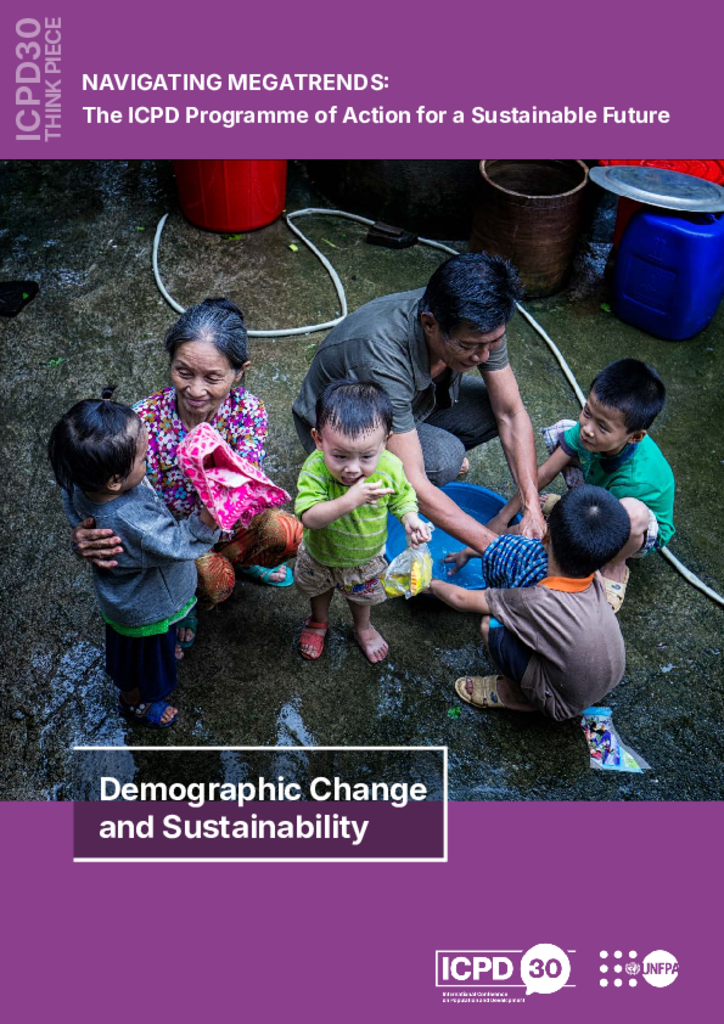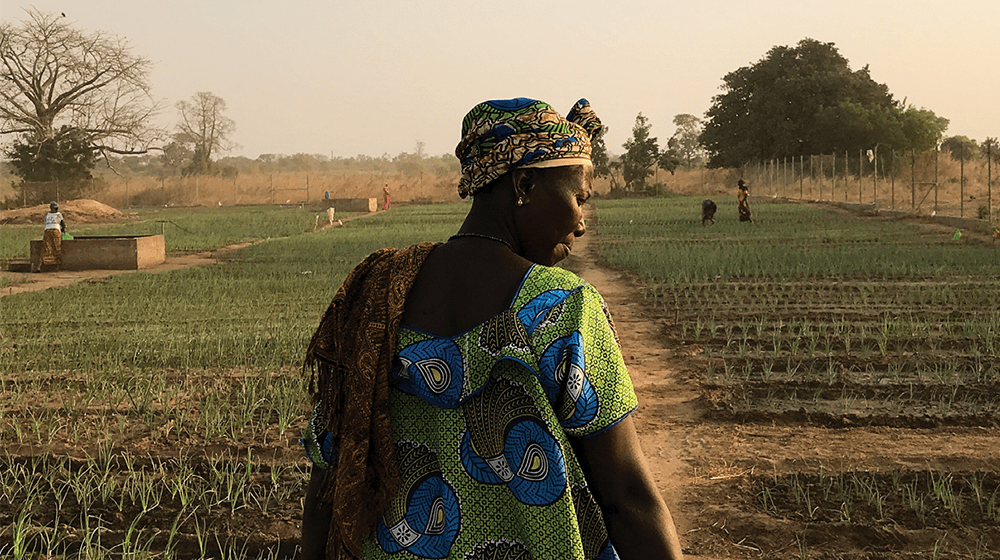Navigating megatrends
The transformational vision and principles adopted within the International Conference on Population and Development (ICPD) Programme of Action (PoA) have made sexual and reproductive health and rights (SRHR) and the equality of women central to development agendas worldwide. Challenging target-based population policies, the PoA affirmed a rights- based approach to sustainable development that places human well-being at the centre, emphasizing the benefits of universality, non-discrimination and inclusive human capital development. Recognizing environmental stress, it called on all governments and development actors to reform unsustainable patterns of production and consumption, and to eradicate inequality and multidimensional poverty.
On the thirtieth anniversary of the ICPD, UNFPA commissioned five think pieces to take stock of progress and provide future-focused ideas on how to achieve the ICPD PoA in a world of radical transformation. The think pieces are titled:
- Demographic change and sustainability
- The future of sexual and reproductive health and rights
- The future of population data
- ICPD and climate action
- A safe digital future
These summary ICPD30 briefs highlight key findings and recommended actions presented in the think pieces:
- Demographic change and sustainability
- The future of sexual and reproductive health and rights
- The future of population data
- ICPD and climate action
- A safe digital future
ICPD and Megatrends
On the thirtieth anniversary of the ICPD PoA, the world is very different than in 1994, calling for new efforts to advance ICPD objectives in 2024 and beyond. While all countries had growing populations in 1994, the world today is characterized by growing populations in all countries. Countries that continue to have high fertility and rapid population growth are now concentrated in sub-Saharan Africa and South Asia, with challenges in fulfilling basic needs and providing social protection for all. At the same time, two thirds of the human population now lives in a country with fertility rates below the replacement level of 2.1 births per woman, with very different challenges, including labour shortages, sustainability of pensions and long-term care for an ageing population. While the median age of populations in West Africa is 17 years, it is over 40 years in Western Europe– highlighting the drastically different population dynamics in different regions of the world today.
Not only are demographic trends vastly different today than in 1994, but climate change has evolved into a global crisis, affecting all aspects of development, including water supplies, food production, infrastructure, biodiversity and human health, including sexual and reproductive health. It is already rendering parts of the world uninhabitable, and all projections suggest it will dislocate more and more people as climate events threaten communities and destroy the livelihoods on which they depend.
A third major change since 1994 has been the transformative development of digitization. In 1994, unbeknownst to many drafting the ICPD PoA, a quiet revolution was underway to digitize global knowledge and information. Within a decade after the ICPD, the world had embraced the worldwide web, and by 2007, 94 per cent of the world’s information storage was digital. Digitization and technology, including artificial intelligence, offer massive potential for accelerating the pace and scale of development. Yet they are also opening new divides and inequalities, and providing new avenues for discrimination and gender-based violence, demanding new and better protections for users and personal data.
In light of these dramatic changes in the past 30 years, UNFPA commissioned the five think pieces to highlight progress and challenges in advancing SRHR and investing in population data that were prioritized in 1994, and to examine how demographic diversity, climate change and digitization will transform future demands. The think pieces are intended to prompt discussion on future priorities and directions for achieving the Sustainable Development Goals and accelerating, advancing and amplifying the vision and principles of the ICPD.
Watch the ICPD30 Think Pieces launch event taking place on World Population Day.
Watch the ICPD30 Briefs launch event that took place at the margins of the 57th Commission on Population and Development.









